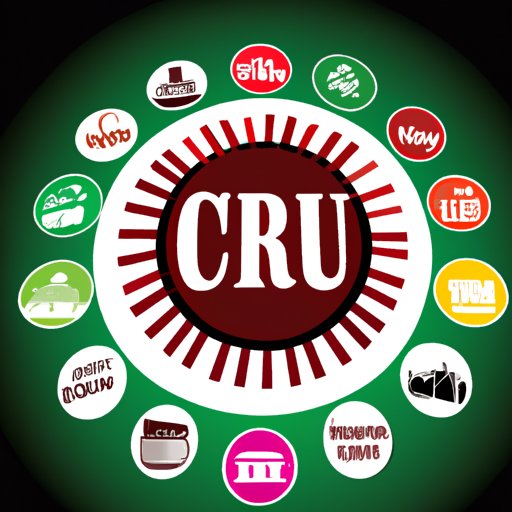Introduction
A credit union is a financial cooperative that provides banking services to its members. Credit unions are owned and operated by their members and are typically non-profit organizations. They offer the same services as a traditional bank, such as checking and savings accounts, loans, and credit cards. However, credit unions offer their members more competitive interest rates, lower fees, and better customer service than traditional banks.
Benefits of Credit Unions
The primary benefit of joining a credit union is the lower cost of borrowing money. Credit unions generally offer lower interest rates on loans, including mortgages and car loans, than banks. Additionally, credit unions typically have fewer fees and fewer restrictions on withdrawals and transfers. Credit unions also often provide higher interest rates on savings accounts than banks.

Difference Between a Bank and a Credit Union
The main difference between a bank and a credit union is ownership. Banks are owned by shareholders who are expecting to make a profit from their investment. Credit unions, however, are owned by their members and don’t aim to make a profit for anyone other than the members. As such, credit unions are able to offer lower interest rates and fewer fees than banks.
Types of Services Offered
Credit unions offer many of the same services as banks, such as checking and savings accounts, credit cards, and loans. However, they may not offer all of the same services, so it’s important to check with your local credit union to see what services they offer.
Process of Applying for a Loan
When applying for a loan at a credit union, you will typically be required to fill out an application and provide certain documents such as proof of income, proof of residence, and a valid form of identification. After the application is submitted, the credit union will review it and determine whether or not you are eligible for a loan. If approved, the loan terms and interest rate will be determined based on your credit score and other factors.
How to Join a Credit Union
In order to join a credit union, you must meet certain eligibility requirements. These requirements vary depending on the credit union, but typically include being employed by the same employer, living in the same area, or belonging to a particular organization or group. Once you have verified that you meet the eligibility requirements, you can apply for membership online or at the credit union’s branch.
Opening an Account
Once you have been approved for membership, you can open an account at the credit union. The process is similar to opening an account at a bank, and you will need to provide personal information such as your name, address, Social Security number, and date of birth. You will also be asked to choose a username and password for online banking.

Exploring the Types of Services Offered by Credit Unions
Credit unions offer a variety of services designed to meet the needs of their members. These services include checking and savings accounts, credit cards, and loans. Checking and savings accounts are available in both regular and high-yield varieties, and credit cards typically offer low interest rates and rewards programs.
Loans
Credit unions also offer a variety of loan products, including mortgages, auto loans, and personal loans. The loan process is similar to that of a bank, and applicants must meet certain criteria in order to be approved. Credit unions also typically offer lower interest rates than banks.
Fees and Interest Rates Associated With Credit Unions
Credit unions typically charge fewer fees than banks for services such as overdraft protection, ATM use, and account maintenance. They also tend to have lower interest rates on loans, including mortgages, auto loans, and personal loans. Additionally, some credit unions offer special incentives such as reduced interest rates for members who maintain a certain balance in their account.
Conclusion
Credit unions are a great alternative to banks for those looking for competitive interest rates and lower fees. They offer many of the same services as banks, including checking and savings accounts, credit cards, and loans. Credit unions are owned and operated by their members, making them a great option for those looking for personalized service and a sense of community. Additionally, credit unions typically offer lower interest rates and fewer fees than banks.
Summary of Credit Unions
Credit unions are financial cooperatives that provide banking services to their members. They are owned and operated by their members and offer competitive interest rates, lower fees, and better customer service than traditional banks. Credit unions offer many of the same services as banks, including checking and savings accounts, credit cards, and loans. Additionally, credit unions typically charge fewer fees and offer lower interest rates than banks.

Advantages of Choosing a Credit Union
Credit unions offer a number of advantages over banks, including lower interest rates, fewer fees, and better customer service. Additionally, credit unions are owned and operated by their members, providing a sense of community and personalized service. For those looking for a more affordable and personalized banking experience, a credit union may be the perfect choice.
(Note: Is this article not meeting your expectations? Do you have knowledge or insights to share? Unlock new opportunities and expand your reach by joining our authors team. Click Registration to join us and share your expertise with our readers.)
